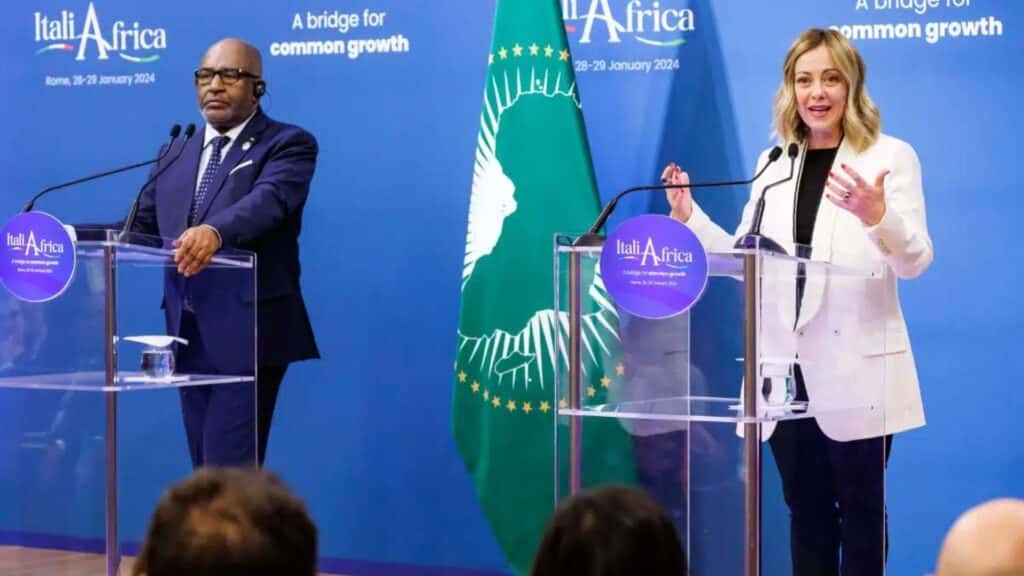The Italian Prime Minister, Giorgia Meloni, today unveiled her ‘Mattei Plan’, a programme of projects in education, agriculture and energy in Africa with which, among other objectives, she aims to combat illegal immigration from the African continent.
“We will never stop mass illegal immigration or defeat the traffickers of human beings without tackling the causes that push people to leave their homes,” he said at the opening of the Italy-Africa summit, held at the Roman Senate in the presence of representatives from dozens of African countries and institutions.
Meloni argued that Africa “is not a poor continent”, as it possesses 30% of the planet’s mineral resources and 60% of arable land, but called for the continent to be given alternatives of “opportunities, work, education and legal immigration”.
Aid at origin with an investment of more than 5.5 billion euros
To this end, the Italian government has prepared the ‘Mattei Plan’, a programme of projects worth more than 5.5 billion euros (almost 6 billion dollars) in loans and guarantees. About 3 billion will come from the Italian Climate Fund and 2.5 billion from the Development Cooperation Fund.
The aim, according to Meloni, is to establish a new paradigm in the relationship with Africa, “from peer to peer and far from any predatory or charitable temptation”. The programme will focus on five major sectors – education, health, agriculture, water and energy – and several interventions in sub-Saharan and Maghreb countries have already been devised. For example, it aims to build a large training centre for renewable energy in Morocco and to fix schools in Tunisia.
It also aims to improve the quality of primary health care by investing in hospitals in Côte d’Ivoire and to support cereal production by investing in agricultural machinery and technologies in Egypt.
Meloni announced pilot projects to create water purification plants and irrigate an area of 8,000 hectares in Tunisia, the construction of wells in the Republic of Congo and plans to teach water reclamation techniques at universities in Ethiopia.
Thanks from the African Union and endorsement from the European Commission
The Italian Prime Minister said that this initial investment “is not enough” and also announced her intention to involve multilateral banks and other donors, including private donors, offering them a new financial instrument with the public bank Cassa Depositi e Prestiti to speed up possible investments in the ‘Mattei Plan’ projects.
And he promised that Africa will occupy “a place of honour” on the agenda of the Italian rotating presidency of the G7 in 2024. “Italy and Europe, and I would say the whole world, cannot think about the future without taking Africa into account,” he said.
The Italian government wants closer ties with Africa for several reasons: first, to stem the flow of migrants arriving on its shores via the Central Mediterranean from the coast of Libya or Tunisia (more than 157,000 migrants in 2023 alone). But also for strategic reasons, such as energy, since Italy is connected to the African continent by two undersea gas pipelines (which has allowed it to replace Russia with Algeria as the leading gas seller after the war in Ukraine).
AU President Azali Assoumani said he had “great expectations” for the current Italian presidency of the G7: “We are at your disposal for exchanges based on the interests of our countries,” he said.
For her part, European Commission (EC) President Ursula Von der Leyen stressed the need to “stop the tragic loss of life along the migration routes” and promised to cooperate on the repatriation of illegal immigrants thanks to the negotiations conducted by the Italian Prime Minister.
